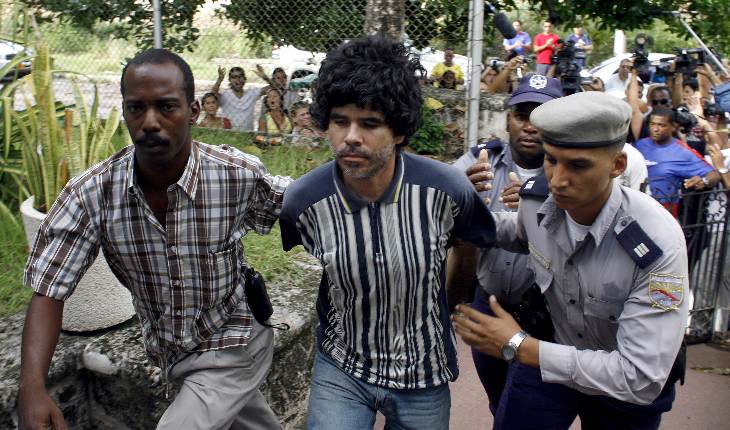By: Daniel McElroy

On June 15, 2018, Cuban punk band frontman Gorki Águila—an outspoken opponent of the Castro regime in Cuba—was barred from boarding a flight to Miami and officially informed of travel restrictions placed on him by the Cuban government. This run-in with authorities is the latest and most direct in a series of instances during which Águila has been prevented from travelling over the past several months.
Águila, whose music has long criticized communism in Cuba, has been barred from performing publicly in the country since 2008. Though initially embraced by the Cuban government and allowed to perform on national television, Águila and his band Porno para Ricardo have become bolder in their resistance over the years and are now forced to have friends abroad distribute their music online as it is censored by Cuban authorities.
International travel had not been an issue for Águila until early 2018. In March, Águila was returning from a trip to Argentina when he was detained at José Martí International Airport in Havana for four hours after pro-democracy pamphlets were discovered in his luggage. Cuban border authorities confiscated the seven pamphlets, titled “Cuban Latino Dialogue”, that they admitted could serve to allow Águila to “exercise his democratic rights in Cuba.” Shortly after this incident, in early April, Águila was prevented from boarding a flight to Miami for the first time after authorities briefly seized his passport and denied him clearance to leave without explanation.
Then, in May, Águila was one of sixteen prominent Cuban dissidents to sign an opposition statement to the “dynastic succession of the Castro family.” The document, which was signed by various artists, journalists, and other prominent figures in Cuban society, appeared just a few months ahead of the 60th anniversary of the beginning of the Castro regime. Águila and his fellow critics used to opportunity to state their opposition not only to the regime itself, but also to its human rights abuses and false election practices. They also expressed support for international pressure against the regime including political, economic, and judicial sanctions.
Águila’s outspoken and official support for the opposition statement appears not to have done him any favors in the eyes of Cuban authorities, as he was subsequently prevented from travelling to Miami again in June. On June 15, Águila again attempted to board a flight to Miami for which he had pre-booked a ticket without any problem, only to be informed that he would be unable to travel that day due to “travel restrictions” against him. Customs authorities again confiscated his passport briefly, though they eventually returned it to him.
